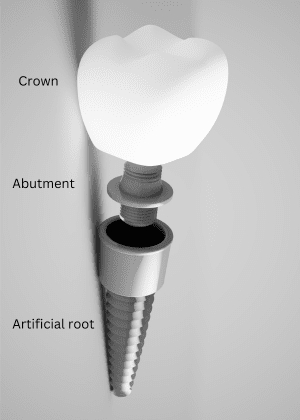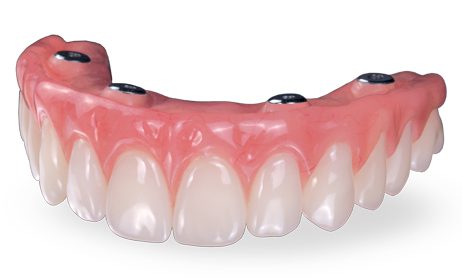I got two dental implants in late January. Two days ago, I saw slight bleeding around one of the implants. Yesterday, I saw no bleeding, but today I noticed it again. Both times, the bleeding occurred while I was brushing my teeth. I did not brush the implants, though. I use a Waterpik around them. I am worried because I live in MD but am in NJ taking my turn for caregiving for my father. I am concerned that I might be experiencing dental implant failure and will have to find a dentist here that I don’t know. Could something else be wrong other than complete failure? Thank you. Kaleb
Kaleb,
Thank you for contacting Dr. Pumphrey’s office in Atlanta regarding bleeding around your dental implant. We understand your concerns, especially if you are far from your regular dentist. Dr. Pumphrey must examine and x-ray your implant for an accurate diagnosis. Still, we will provide information on bleeding around an implant.
Does Bleeding Around an Implant Mean That It’s Failing?

Schedule an appointment with a periodontist if you see bleeding around a dental implant
Bleeding around a dental implant is not a sign of dental implant failure within two to three days after surgery. However, if it has been over a week since your dental implant surgery and you notice bleeding around an implant, contact your dentist to report the concern. Even if you are traveling, your dentist may be able to refer you to a periodontist (dental implant specialist) near your current location. Otherwise, search online for an experienced periodontist, checking the doctor’s credentials and patient reviews.
What Are the Signs of Dental Implant Failure?
Signs and symptoms of dental implant failure include the following:
- Gum or bone infection around the implants
- Loose implants
- Numbness or tingling
- Pain around the dental implants
- Frequent bleeding
Why Do Dental Implants Fail?
According to a September 2021 article in the American Academy of Implant Dentistry, three reasons for dental implant failure include the following:
- Peri-implantitis. Gum disease around dental implants destroys gum tissue and bone, causing implants to fail.
- Parafunctional habits. Nail-biting, teeth grinding, or other oral habits can stress and loosen dental implants.
- Osseointegration failure. Lack of quality jawbone will prevent the bone from locking with your dental implants.
The article says that you can improve the success rate of your dental implants by providing thorough medical and dental histories. The details will help your implant dentist anticipate potential challenges.
Dental Implant Complications While Traveling
If you experience dental implant complications while traveling, call your dentist. If your dentist cannot refer you to a local specialist, look for an experienced periodontist in the area for a prompt appointment.
Atlanta periodontist Dr. David Pumphrey sponsors this post.








